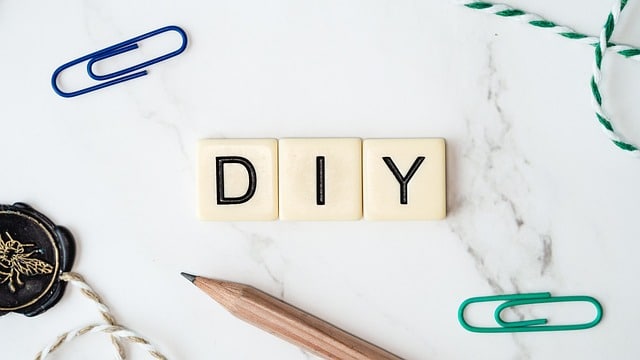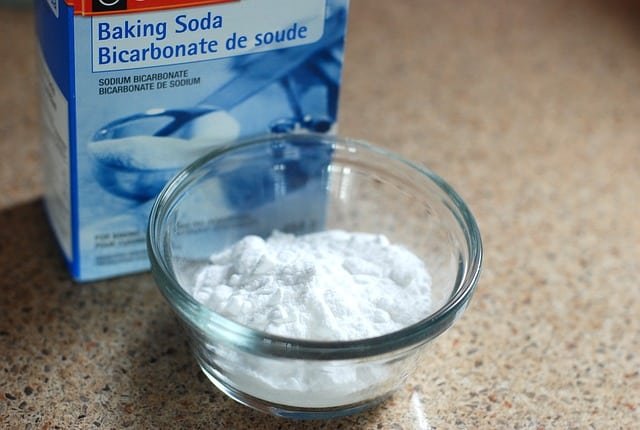Introduction – DIY And Homemade Household Supplies
DIY cleaning supplies are homemade cleaning products that are created using natural ingredients. These ingredients often include common household items such as vinegar, baking soda, and lemon juice. DIY cleaning supplies offer numerous environmental benefits, such as reduced waste, fewer emissions, and fewer toxic chemicals entering the atmosphere. Take a look at this EPA guide for making a DIY air cleaner that became popular in the age of COVID19.

Examples Of DIY And Homemade Household Supplies
Vinegar is one of the most popular ingredients for DIY cleaning supplies. It is an effective multi-purpose cleaner that can be used to clean and sanitize most surfaces. Baking soda is another useful ingredient for making DIY cleaning supplies and can be used to make a scrubbing paste, as well as a deodorizer. Lemon juice is another common ingredient for DIY cleaning supplies, and can be used to make a cleaning solution for windows, countertops, and even stainless steel appliances.
There’s no reason to stop at cleaning. Other types of items include cosmetic sprays, furniture stains, deodorizers etc.
Advantages Of DIY Supplies
DIY supplies offer numerous advantages, including cost savings, health benefits, and safety for the environment. DIY cleaning supplies are often much cheaper than store-bought products, and they are usually made with natural ingredients that are safer for the environment. In addition, DIY cleaning supplies can be beneficial to your health, as they do not contain the harsh chemicals and toxins found in many store-bought cleaning products.
Lastly, you have control over the types of ingredients in DIY cleaning supplies so are able to impact the environment directly compared to using traditional store-bought products. For example if you choose to use biodegradable ingredients in DIY cleaning supplies the impact on carbon emissions will be lower. In addition, DIY cleaning supplies produce less waste, as you will avoid buying and throwing away containers.
Examples Of Recipes
DIY cleaning supplies can be used to make a variety of cleaners for different surfaces.
For example, an all-purpose cleaner can be made with vinegar, baking soda, and water. This cleaner can be used to clean most surfaces, including countertops, windows, and appliances.

A glass cleaner can be made with vinegar, lemon juice, and water, which can be used to clean glass surfaces.
Finally, a carpet cleaner can be made with baking soda, white vinegar, and water, which can be used to clean carpets and rugs.
All of these DIY cleaning supply recipes are easy to make and are much safer for the environment than traditional store-bought cleaners. In addition, these recipes are much cheaper than store-bought cleaners, so you can save money while helping to protect the environment.
ShrinkThatFootprint’s DIY Guides
Take a look at our site and our numerous guides. A non-exhaustive list of DIY guides are here.
Bedroom Related
DIY Mattress Cleaner – Solvent based DIY products that soak up odor and remove stains that you can make yourself.
Zero-Waste And DIY Candle Making – Use beeswax to make your own candles or get the zero-waste kinds.
Kitchen-related
DIY cleaner for granite countertops – avoid change in acidity that will etch the granite
Personal Care
Eco-friendly method of removing nail polish – oil and solvent based methods take more time but you know what you’re putting on the nail
Other
Homemade furniture polish – waxes and oils are the main natural polishing agents
Using coffee to treat cellulite – not backed up by science but the casual knowledge is that coffee contains antioxidants
DIY Homemade Shaving Gel – key ingredients are glycerin and soap
Homemade air freshener – easy ways to add fragrance to the air
Homemade Herb Bouquets – Generates pleasant fragrances for home. Easy to make!
DIY Febreze substitute – Make your own odor removers using essential oil scents.
Bathroom
DIY Soft Scrub Alternative – key ingredients are baking soda for bubbliness and abrasive effect
Conclusions
In conclusion, DIY household supplies offer numerous environmental benefits. DIY household supplies are often cheaper, safer for the environment, and produce fewer emissions than traditional store-bought products. In addition, you are able to choose natural ingredients.
Further research should be conducted to explore the full potential of DIY household supplies and their ability to reduce waste and emissions. As more people become aware of the environmental benefits, more people are likely to switch to these more sustainable products. DIY supplies are an easy and affordable way to help protect the environment, and they can be used to make a variety of cleaners for different surfaces.

Anne Lauer
Anna Lauer is a writer, gardener, and homesteader living in rural Wisconsin. She has written for Mother Earth News, Grit, and Hobby Farms magazines. Anna is writing a new book about growing your food for free and an ultimate guide to producing food at little to no cost. When she’s not writing or gardening, Anna enjoys spending time with her husband and two young daughters.
